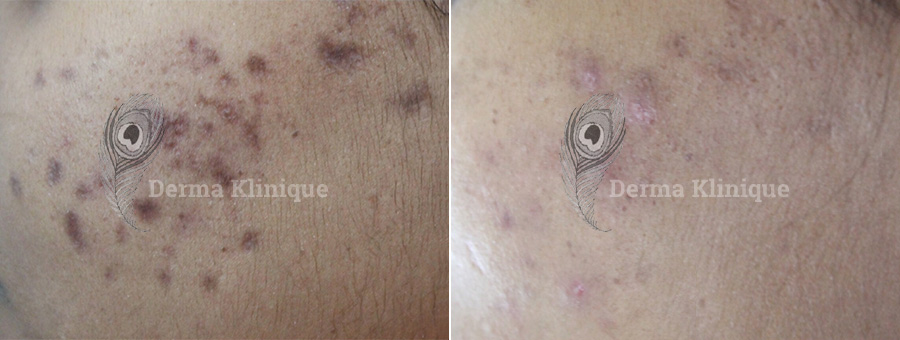
Pigmentation
One of the most common cosmetic complaints, treating pigmentation requires proper counselling, assessment of the pigmentation and appropriate treatment.
What causes pigmentation?
The list can be exhaustive. But to put it in simple words, pigmentation can either be genetic or it can be acquired (eg: sun exposure, maturational, skin diseases like Lichen planus pigmentosus, cosmetic dermatitis, melasma, acanthosis caused by insulin resistance etc,.).
Is pigmentation treatable?
Yes, as mentioned before, proper patient counselling and trying to avoid causative factors (if any) coupled with targeted treatment, pigmentary problems can be tackled. In a very few instances, if the pigmentation is stubborn, the response to treatment may be slow and/or poor.
Are any investigations required?
Yes, if there are any underlying hormonal imbalances or signs of insulin resistance. Also in certain skin diseases, it is essential to do a skin biopsy.
What are the treatment options?
The cornerstone of treatment is ‘SUNSCREEN’.
Regular and proper use of sunscreen helps to protect the skin from further damage.
Treatment options include:
– Topical applications and oral anti-oxidants and/or sunscreens.
– Oral medications (in case of skin diseases like lichen planus pigmentosus)
– Chemical peels
– Q switched lasers.
